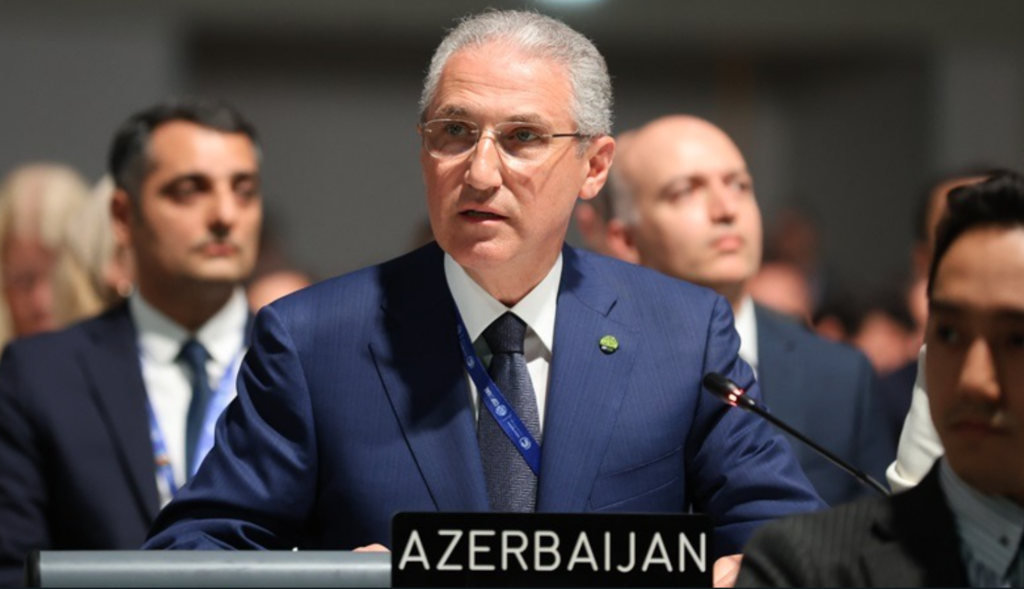Negotiations continued on Friday evening at the UN Climate Conference (COP29) in Baku, Azerbaijan, with a new climate-financing target for developing countries at the heart of intensive discussions.
Three hours before the scheduled end of COP29 – 3 p.m. Brussels time - the Azerbaijani presidency of the conference unveiled a new set of texts, including an eagerly awaited draft on the new financing target.
For the first time, an amount was unveiled, and it would be an understatement to say that it disappointed the developing countries.
Proposed target of $250 billion per year fails to satisfy
The new target proposed was $250 billion per year between now and 2035, to be met mainly by the developed countries.
Until then, the Europeans had refused to play their trump card and put forward any figure, wanting first to reach agreement on the ‘architecture’ of climate financing (donations, public or private loans, the role of multilateral development banks, etc.).
The five-page document states that the $250 billion target will come from a “wide variety of sources, public and private, bilateral and multilateral, including alternative sources.”
This last point refers to taxes that could one day be introduced globally on billionaires, air transport or shipping, for example.
New text calls on developing countries to help foot climate financing bill
The new text also invites developing countries to contribute to climate financing, an affront to some countries in the South.
One of the European Union's hobbyhorses at COP29 is to broaden the base of contributors beyond the industrialised countries, with the 27 arguing that given the scale of the needs, “all countries that have the capacity to do so should participate,” and evident reference to China and the oil-producing nations.
“Totally unacceptable’, said Ali Mohamed, the representative of the group of African countries at COP29, in reaction to the new text.
Asked on Wednesday about rumours of $200 billion dollars a year in climate funding from the countries of the North, Bolivian negotiator Diego Pacheco, speaking on behalf of a group of developing countries, replied: “Is this a joke?”
Chances are the $250 billion target would not have made him any happier.
Vulnerable states see proposed target as a ‘spit in the face’
The same is true of the alliance of 39 small island developing states, which believes that a target of $250 billion “does not raise the bar from the previous, ineffective target of $100 billion.” The small island states even spoke of “contempt,” deploring the fact that no minimum amount had been set aside for them or for the least developed countries (LDCs).
The small island developing states had asked for $39 billion while the request for the LDCs was for $220 billion.
Panama's special representative for the climate had no hesitation in calling the $250 billion target “spit in the face” of vulnerable nations, describing it as “crumbs.”
Marshall Islands climate envoy Tina Stege said it was it “shameful to propose texts like these.”
Economists urge developed nations to up target to at least $300 billion a year
The NGOs also criticised the draft text for failing to meet the needs of the countries of the South in the face of climate change, especially as they are the most affected by its harmful consequences while being the least responsible for them.
The figure of $250 billion is only a fraction of what developing countries are asking for. They have repeatedly stated that their needs in the face of climate change will amount to $1,300 billion a year over the next few years.
A report by economists commissioned by the UN also supports this view. On Friday, they reiterated their analysis that developed countries should commit to providing developing countries with “at least $300 billion a year by 2030 and $390 billion by 2035.”
These are ‘feasible’ targets, according to the economists: Amar Bhattacharya, Vera Songwe and Nicholas Stern.
Draft proposes at least $1,300 billion from 'all public and private sources'
The needs of developing countries alone to adapt to the harmful consequences of climate change will amount to $400 billion dollars a year, African Group representative Ali Mohamed pointed out.
The latest text proposed by the COP29 Presidency puts forward the figure of “at least $1,300 billion,” but does so by calling on “all actors” to work together to increase climate financing for developing countries “from all public and private sources.”
But while the delegations analysed the new texts down to the last comma, the COP29 Presidency - whose conduct of the negotiations was not unanimously supported - hinted on Friday evening that it wanted a “fairer and more ambitious” financial target - i.e. an increase on the latest proposal.
A plenary session initially scheduled for 10 p.m. on Friday (7 p.m. in Belgium) at Baku's Olympic Stadium, was subsequently cancelled, and the negotiators looked set to spend a sleepless night in the Azerbaijani capital.

